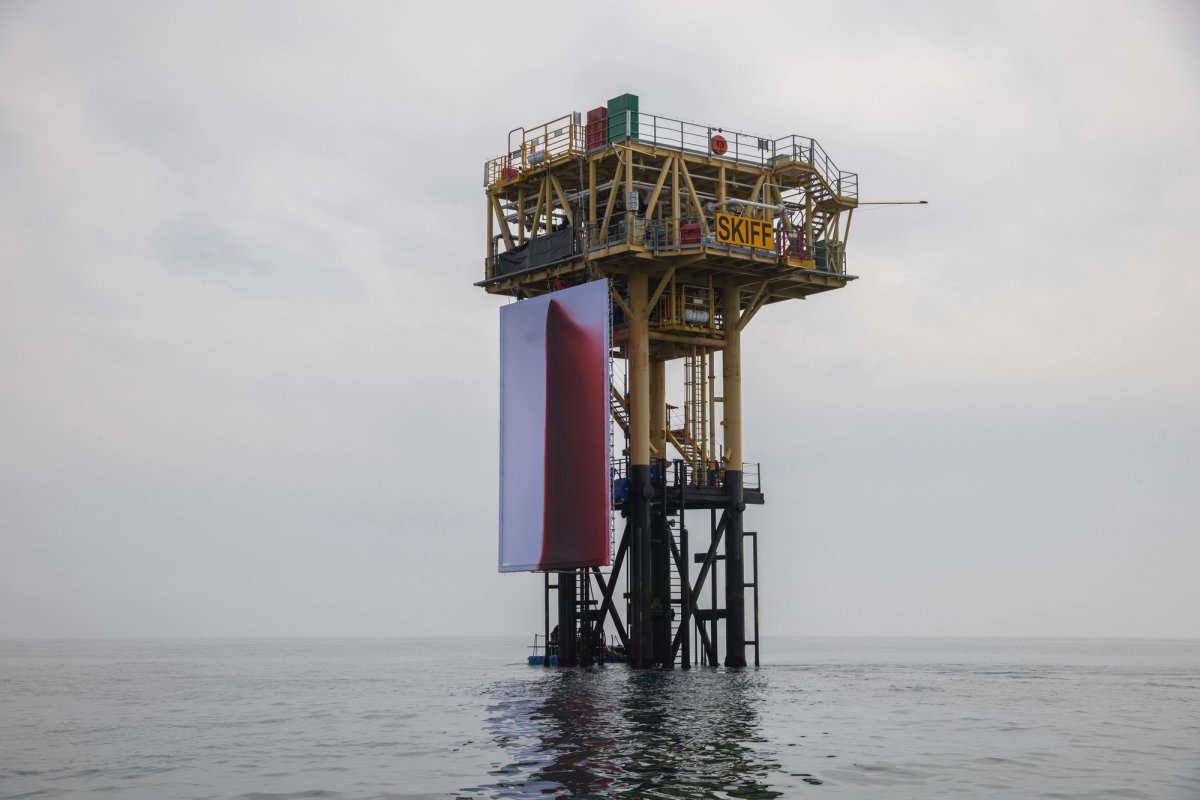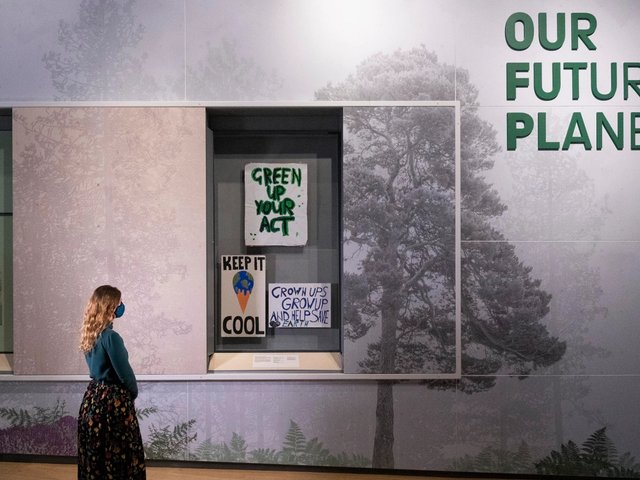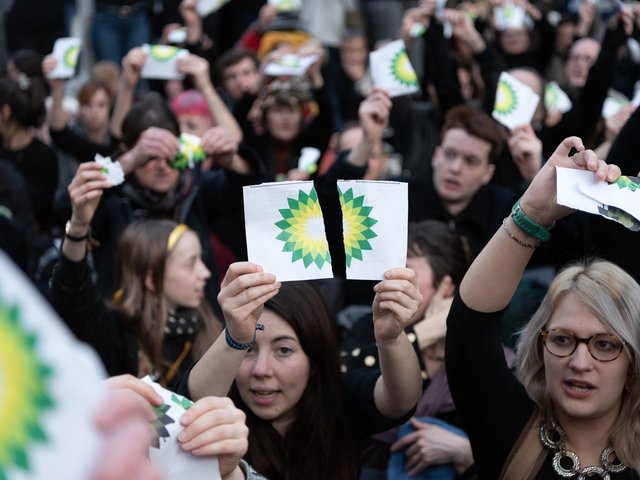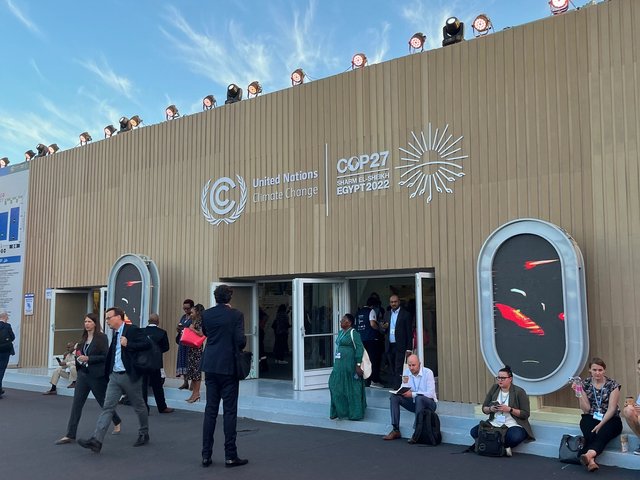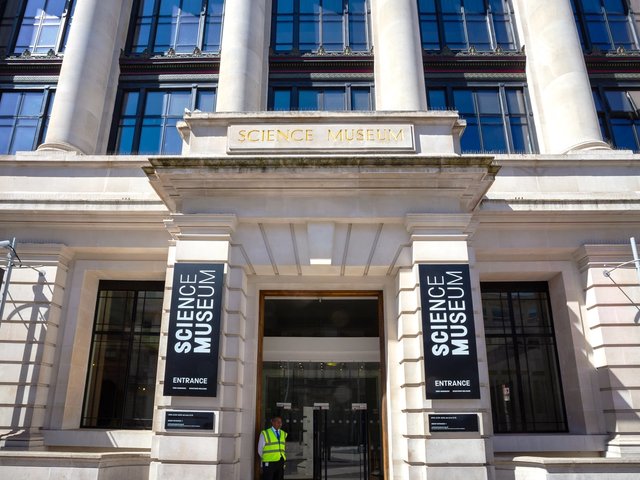A new Anish Kapoor work highlighting the “butchery” of the fossil fuel industry has been installed by Greenpeace on a Shell gas platform in the North Sea, making it the first artwork to be exhibited from an active offshore gas platform.
BUTCHERED consists of a 12m by 8m canvas, which climbers from Greenpeace attached to the side of the gas mining structure 45 nautical miles off the Norfolk coast. After securing the canvas, a high pressure hose was attached, which pumped 1000 litres of blood-red liquid onto the fabric to symbolise the wounds inflicted on the world by oil and gas companies. The action coincides with record-breaking temperatures Europe, including wildfires in Spain and heat-related health warnings in the UK.
Kapoor, whose blood-like solution was made of seawater, beetroot powder and non-toxic pond dye, said the work was a tribute to the “tireless activists who choose to disrupt, disagree and disobey,” in the face of the destruction caused by the climate crisis.
“The carbon dioxide released by burning fossil fuels is invisible, but we are witnessing the devastation that its extraction wreaks on our world,” he said. “What still remains largely hidden is the responsibility oil giants like Shell bear for causing this destruction and profiting from worldwide suffering.
“I wanted to make something visual, physical, visceral to reflect the butchery they are inflicting on our planet: a visual scream that gives voice to the calamitous cost of the climate crisis, often on the most marginalised communities across the globe.”
According to an April 2025 study published in the scientific journal Nature, the carbon pollution caused by Shell over three decades is estimated to have already caused at least $1.42 trillion worth of climate damage around the world.
A Shell UK spokesperson said: “Safety at sea is our priority. Greenpeace entered a restricted safety zone around the platform without permission, which is established under UK law to protect people and prevent collisions.
“Their actions were extremely dangerous, involved illegally trespassing and put their own and others’ lives at risk. We respect the right of individuals and organisations to protest, but it must be done safely and lawfully.”
In response to accusations of law-breaking, a Greenpeace spokesperson said: “As for the legality of the action, it is for the police and, if it comes to it, a court of law to decide that, not Shell. What we do is part of a long tradition of peaceful protest and civil disobedience that's been the engine of social and environmental progress, from giving us votes for women and the right to a weekend to ending commercial whaling and stopping fracking in the UK.”
Kapoor is known for his large installations and public sculptures. His most well known works include ArcelorMittal Orbit in London’s Olympic Park and Cloud Gate, also known as “The Bean” in Chicago, which made headlines earlier this week when it became the centre of a satirical protest. In 2019, he joined other artists in calling on London’s National Portrait Gallery to cut ties with oil giant BP.


